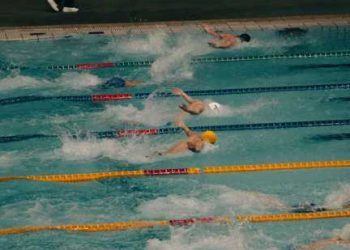In the world of athletics, optimal performance is key. Athletes spend countless hours training and honing their skills to be at the top of their game. However, one crucial aspect that is often overlooked is nutrition. The role of nutrition in maximizing athletic performance cannot be understated, as what an athlete eats directly impacts their energy levels, recovery time, and overall ability to perform.
Nutrition plays a key role in providing the necessary fuel for athletes to perform at their best. Carbohydrates, fats, and proteins are the macronutrients that provide energy for the body. Carbohydrates are the body’s main source of energy and are especially important for athletes engaging in high-intensity activities. Foods rich in carbohydrates include fruits, vegetables, whole grains, and legumes.
Fats are another important source of energy, especially for endurance athletes. Healthy fats such as avocados, nuts, seeds, and olive oil provide long-lasting energy and help the body absorb important fat-soluble vitamins. Proteins are essential for muscle repair and growth, making them crucial for athletes looking to build and maintain muscle mass. Foods rich in protein include lean meats, poultry, fish, eggs, and dairy products.
In addition to macronutrients, micronutrients play a key role in athletic performance. Vitamins and minerals are necessary for a variety of bodily functions, including energy production, bone health, and immune function. Athletes who are deficient in certain vitamins and minerals may experience fatigue, muscle cramps, and decreased performance. Eating a varied and balanced diet rich in fruits, vegetables, whole grains, and lean proteins can help ensure that athletes are getting all the necessary vitamins and minerals for optimal performance.
Hydration is another crucial aspect of nutrition for athletes. Dehydration can significantly impact performance, leading to fatigue, decreased coordination, and impaired cognitive function. Staying properly hydrated before, during, and after exercise is essential for optimal performance. Athletes should aim to drink plenty of water throughout the day and consume electrolyte-rich beverages during intense training sessions or competitions.
Timing is also important when it comes to nutrition for athletes. Eating the right foods at the right times can help maximize energy levels, promote recovery, and optimize performance. For example, consuming a meal rich in carbohydrates and protein within 30 minutes to one hour after exercise can help replenish glycogen stores and facilitate muscle recovery. Eating a balanced meal containing carbohydrates, protein, and healthy fats two to three hours before exercise can provide the necessary fuel for optimal performance.
Supplements can also play a role in maximizing athletic performance, but they should not be relied upon as a substitute for a healthy diet. Certain supplements, such as protein powders, creatine, and electrolyte drinks, can help support energy production, muscle recovery, and hydration. However, athletes should always consult with a healthcare provider or registered dietitian before adding supplements to their regimen.
In conclusion, the role of nutrition in maximizing athletic performance cannot be overstated. Eating a balanced diet rich in carbohydrates, fats, proteins, vitamins, and minerals is essential for providing the necessary fuel for optimal performance. Hydration, timing, and supplements can also play a role in supporting energy levels, recovery, and overall athletic performance. By prioritizing nutrition and fueling their bodies properly, athletes can ensure they are performing at their best on and off the field.













